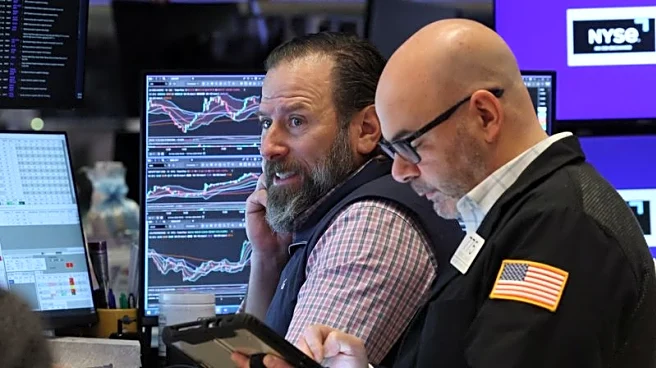What is the story about?
What's Happening?
Charlie Javice, the founder of the financial aid startup Frank, has been sentenced to seven years in prison for defrauding JPMorgan Chase out of $175 million. The sentencing took place in Manhattan Federal Court, where Judge Alvin Hellerstein described the crime as 'biblical' in its deception. Javice was convicted of fraud in March for falsely claiming that her company had 4 million customers, when in reality, it had only a few hundred thousand. This misrepresentation led JPMorgan Chase to acquire Frank under false pretenses, believing it had significant value due to its purported customer base. During the sentencing, Javice expressed remorse and apologized to her family, acknowledging the gravity of her actions.
Why It's Important?
This case highlights the significant risks and consequences of fraudulent activities in the business world, particularly in the startup sector. The sentencing serves as a cautionary tale for entrepreneurs and investors about the importance of transparency and honesty in business dealings. For JPMorgan Chase, the fraud represents a substantial financial loss and a reputational challenge, as it underscores the need for rigorous due diligence in acquisitions. The case also reflects broader concerns about the integrity of startup valuations and the potential for misleading claims to attract investment.
What's Next?
Javice's sentencing may prompt increased scrutiny and regulatory oversight of startup valuations and acquisition processes. Financial institutions and investors might implement more stringent verification measures to prevent similar incidents. The case could also lead to discussions about the ethical responsibilities of startup founders and the potential need for reforms in how startups are evaluated and acquired.
Beyond the Headlines
The case raises ethical questions about the pressures faced by startup founders to demonstrate rapid growth and success, which can sometimes lead to unethical decisions. It also highlights the potential for systemic issues within the startup ecosystem, where inflated valuations and aggressive growth targets can incentivize fraudulent behavior.
















